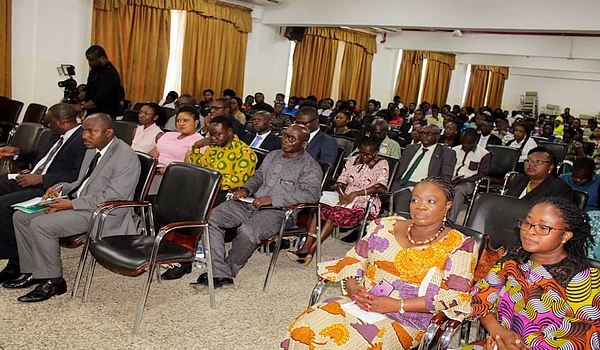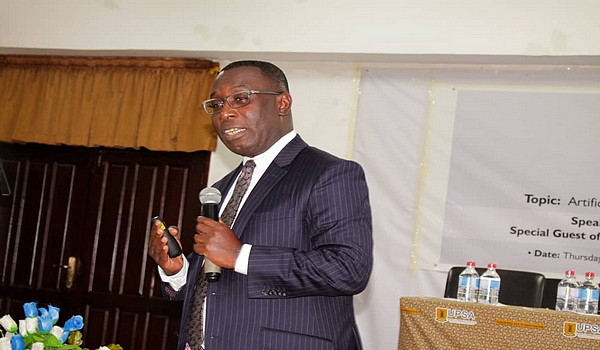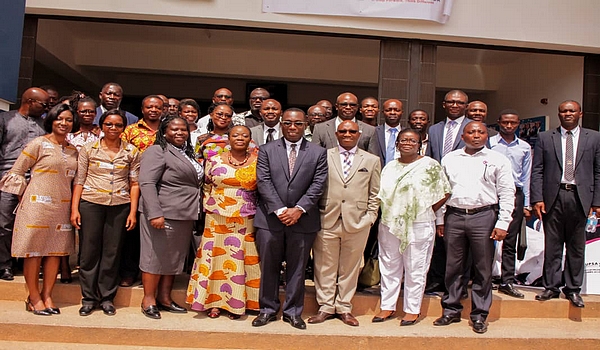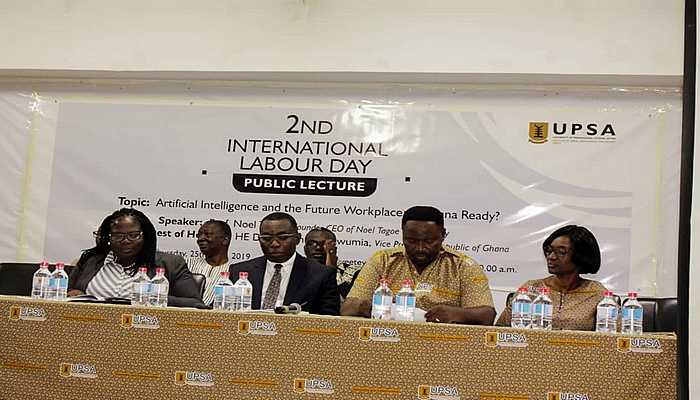The Institute of Work, Employment and Society (IWES) of the University of Professional Studies, Accra (UPSA) has held its second International Labour Day Lecture on the theme: Artificial Intelligence and the future workplace: Is Ghana Ready? This year’s theme focused on promoting Goal 8 of the United Nations Sustainable Development Goals (SGDs), which is to ensure inclusive and sustainable economic growth, employment and decent work for all.

According to the Director of IWES, Dr. Mary Essiaw (Mrs.), the Institute underscores the importance of uniting workers during this year’s May Day Celebration for social development, as global predictions have indicated a massive industrial revolution to be propelled by the use of Artificial Intelligence.
“We hope this forum will create awareness on AI so that labour advocates, civil society organisations, academia, the media and the general public can start discussing the future and the numerous benefits of Artificial Intelligence,” she said.
Speaking on the theme, Founder and CEO of Noel Tagoe and Company, Prof. Noel Tagoe, urged participants to be more innovative and increase their capabilities as the use of Artificial Intelligence (AI) is making work easier, faster and less costly.

He said during the last decade, Artificial Intelligence (AI) is gradually becoming a boom in industry and research.
Explaining, AI, Prof. Tagoe said, it is the development of computer systems that are able to perform a particular non-required human intelligence such as visual perception, speech recognition, decision making and translation between languages. It is intelligence displayed by machines in contrast to the natural intelligence displayed by humans.
“We have seen a giant rise in the usage of AI industries, including the medical sector. In medicine, without specialist supervision, AI is capable of diagnosing health problems ranging from age-related vision losses to heart problems,’’ he said.
According to him, AI has replaced human resource up to 65% as at 2018 and in customer service and in the business world, businesses have adapted ‘chatbots’ to engage their customers to ensure maximum customer satisfaction.
He stressed the need to adjust to AI and become more diversified, as it is not only taking our jobs but our lives as well.
The Vice-Chancellor, Prof. Abednego Feehi Okoe Amartey in his welcome address, noted that whether we like it or not, technology will keep on advancing and we need to develop policies that will keep us abreast with the times and make the best of what technology offers, while putting measures in place to mitigate the hardships that technological advancement brings in its wake.
Edmund Kareweh, of the General Agricultural Workers’ Union, raised concern on how to use economic growth and development to induce employment creation. According to him, the growth of Ghana’s economy is on the increase, but without the corresponding creation of jobs.
‘‘The benefits of Artificial Intelligence technology at the workplace would deliver huge profit to the capitalist but leave extremely huge social unemployment behind for the public and the state to bear,’’ he said.

This year’s lecture was graced by the Pro-Vice-Chancellor, Prof. Charles Barnor of the University, the Chief Director, Office of the Vice-President of Ghana, Deputy Minister of Labour, representatives from the Trades’ Union Congress (TUC) and Institute of Directors, Deans, Directors, staff and students of UPSA.



